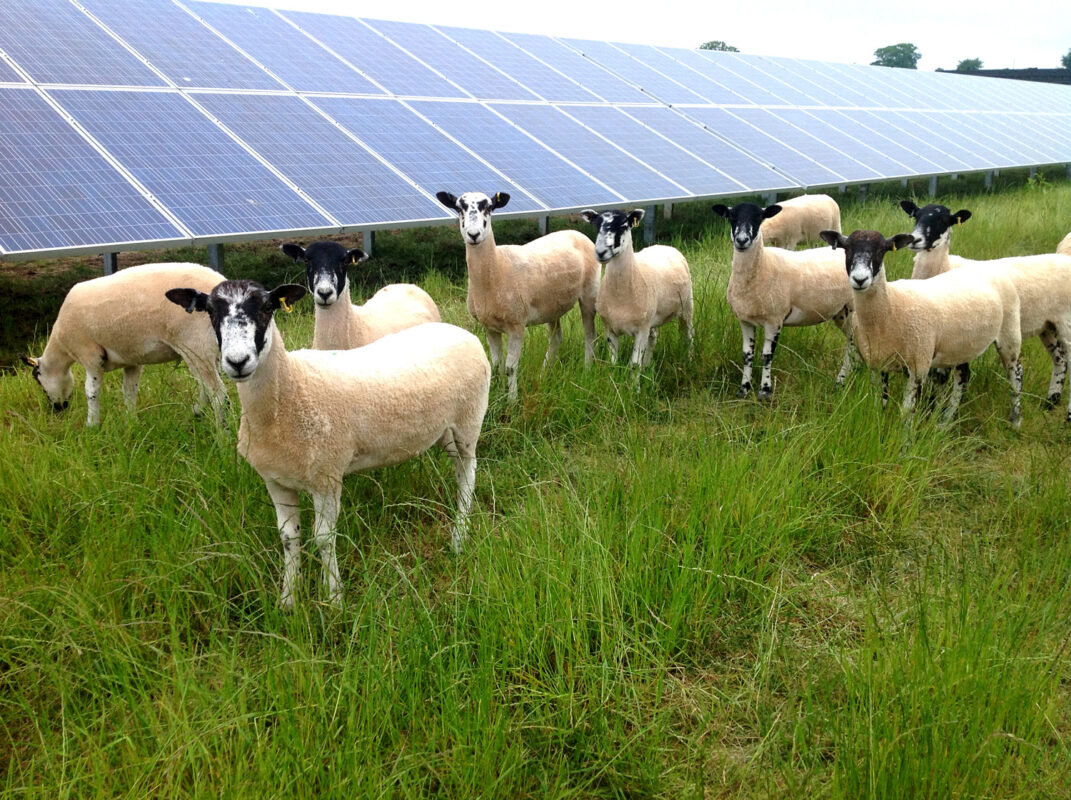Irish Farmer’s Association wants clarity from government on future subsidy tariffs as 6,000 acres of farmland are currently under contract with solar developers. Image: Lightsource.
The Irish government is facing fresh calls for clarity over a delayed solar energy subsidy scheme from the Irish Farmer’s Association (IFA), which claims thousands of acres of land are under contracts from developers awaiting news.
The Department of Communications, Energy and Natural Resources (DCENR) launched a consultation on a Renewable Electricity Support Scheme and future REFIT tariffs in July 2015 and was expected to announce its policy decision in June 2016.
However following delays in the formation of a new government earlier this year and changes in personnel developing the scheme, this has been pushed back. A second consultation on the scheme is expected in the autumn, with a final announcement likely to come forward at the end of the calendar year.
Joe Healey, president of IFA, has claimed that huge swathes of farmland in the Republic have been bought up or reserved by developers who are awaiting greater policy certainty regarding REFIT tariffs.
He also claimed that while future policy has yet to be determined, developers are bringing forward a number of speculative applications in an attempt to secure land for when a subsidy scheme is established.
“Over 6,000 acres of farmland is currently under some form of a solar contract, in anticipation of a new renewable electricity price support, which was due to be announced earlier this year,” he said.
“The delay in clarity from the Government regarding the level of price support is contributing to a high level of speculative approaches by development companies. This is extremely concerning and IFA will meet with energy minister Denis Naughten shortly to seek progress on this issue.”
IFA is also concerned about the pressue being placed on rural communities to accept renewable energy projects. It is preparing to launch a guidance document for farmers who have been approached by development companies at the forthcoming IFA Solar Seminar on 14 July in Portlaoise.
James Murphy, chair of IFA’s renewables project team, said: “It is no longer acceptable for developers to impose renewable projects in rural Ireland. Host landowners and their neighbours must be offered a shareholding in such renewable projects. Government policy and grid connection policy must support this.”
Ireland is facing growing pressure to meet its EU-set renewable energy target of 16% by 2020, which includes a measure of 40% of electricity demand to be met by renewable sources by 2020. According to the latest progress report covering 2014, renewable energy accounted for just 8.6%, providing 22.7% of electricity.
If Ireland fails to meets the levels set by the European Union, it could face fines of up to EUR150 million per annum for every percentage point missed after 2020.
However, a new subsidy scheme following a second consultation will require state aid approval before being introduced, which could push the initiative well into summer 2017. Depending on the rate of grid applications being processed, approved and connection dates issued, it has been estimated that the earliest mass deployment of solar may not come until mid-2018.
Until then, companies are holding off on developing new solar installations until the level of state support is revealed. In addition, a high proportion of projects within the pipeline of grid applications in Ireland – thought to be around 3GW – are considered highly speculative and could significantly reduce the number of projects brought forward to meet EU targets.
Speaking to Solar Power Portal last week, Ronan Kilduff, managing director of solar developer Elgin Energy, said: “There's nothing cohesive coming from government where there's common language saying we are not going to hit our targets – there's none of that.
“Our view as a conservative business is that we'll have nothing [in policy terms] until December and we have to have a strategy to get us through to that point which means develop projects, stay focused and not get distracted by all this hype going on in the industry. It's all about delivering projects.”


